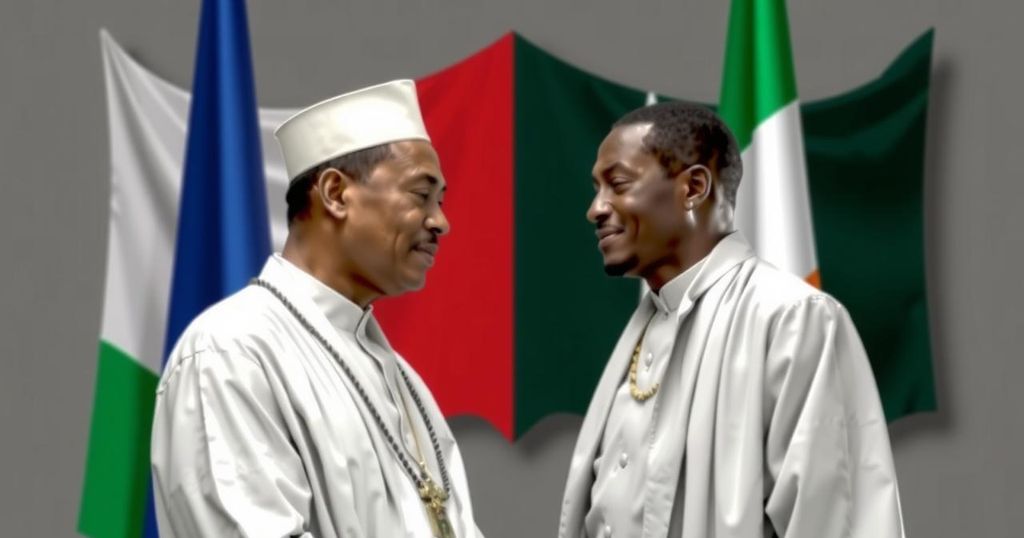France has denied claims made by Niger’s military leader that Nigeria is providing a base for destabilizing Niger. Allegations of collusion and negotiations with terrorist groups have been refuted by French officials and the Nigerian government, which emphasized the importance of maintaining a cordial relationship with France. Diplomatic remarks highlighted the necessity of broad international partnerships to tackle regional security issues, with Nigerian officials asserting their autonomy in foreign relations.
On Wednesday, France firmly rejected allegations from the leader of Niger’s military junta, Gen. Abdourahamane Tchiani, claiming that Nigeria had offered its territory to France for destabilizing Niger. Mr. Bertrand de Seissan, the Political Counsellor at the French Embassy in Nigeria, labeled the claims as unfounded. Tchiani accused both Nigeria and France of seeking to undermine his government’s stability, suggesting illicit negotiations with terrorists. In response, Nigeria’s Ministry of Foreign Affairs condemned these assertions as baseless, affirming the cordial relationship between Nigeria and France, framed by mutual respect and non-interference in domestic matters.
In an interview with Arise TV, Nigeria’s Foreign Minister, Ambassador Yusuf Tuggar, further denounced the allegations while reinforcing Nigeria’s enduring partnership with France. He underscored the necessity of collaborations with global powers, stating that combating regional insecurity demands diverse alliances. Tuggar asserted that Nigeria possesses the autonomy to determine its foreign relationships, implying that external influences should not dictate its international collaborations.
At a foreign policy conference, French President Emmanuel Macron also addressed the claims and criticized the attitude of Sahelian leaders, referring to them as “ungrateful” for shifting focuses away from combating terrorism. Macron’s remarks underscore France’s commitment to its presence in the region, despite the challenges posed by security escalations and political shifts.
The allegations made by Gen. Abdourahamane Tchiani, the leader of Niger’s military junta, arise amidst ongoing tensions in the Sahel region, where security issues, particularly terrorism, are prevalent. France has long been involved in military operations in the area to combat extremist groups. The relationship between France and its former colonies has frequently been scrutinized, particularly as some African nations express dissatisfaction with French influence in their affairs. This context is crucial to understanding the implications of Tchiani’s accusations and France’s subsequent denials.
In conclusion, both France and Nigeria have categorically rejected the allegations of collusion to destabilize Niger, emphasizing their commitment to maintaining a respectful and constructive bilateral relationship. These tensions signify the complexities of foreign relations in the Sahel, where historical ties and contemporary security challenges intersect. The need for comprehensive partnerships remains vital for addressing the multifaceted issues affecting the region, as articulated by Nigerian officials. The statements from both nations reflect a mutual determination to uphold their diplomatic ties amidst external pressures and accusations.
Original Source: punchng.com






